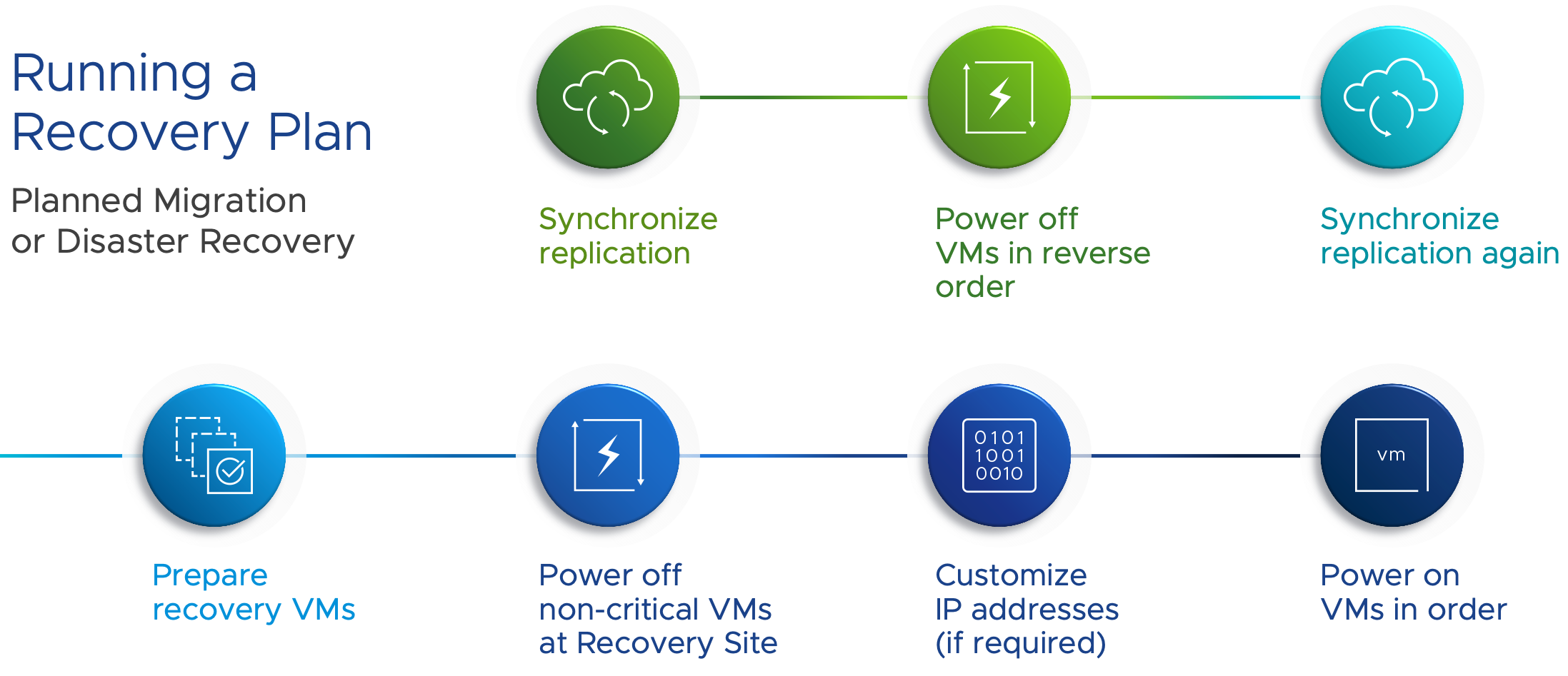VMware Disaster Recovery with Site Recovery Manager is now available for Google Cloud VMware Engine


VMware Site Recovery Manager, the premier DR solution for VMware workloads, is now available with Google Cloud VMware Engine as part of the new “Site Recovery Manager for Hyperscalers” licensing option. With this new addition, VMware disaster recovery is now possible to even more clouds.
Organizations are always looking for ways to reduce costs and overhead, and Site Recovery Manager on Google Cloud VMware Engine enables that by eliminating the requirement for a dedicated DR site. Site Recovery Manager with Google Cloud VMware Engine supports the streamlined scaling and flexibility of Google Cloud VMware Engine in combination with the automation and orchestration of Site Recovery Manager. Site Recovery Manager, in combination with Google Cloud VMware Engine, enhances disaster recovery by allowing organizations to replicate their virtual machines, create dynamic recovery plans, and non-disruptively test them to drive recovery readiness.
What makes Site Recovery Manager a robust solution to meet the most stringent DR needs? Let’s dive into the details.
Site Recovery Manager can be configured and deployed in a few hours easily. Site Recovery Manager and vSphere Replication, which are both deployed as virtual appliances, are installed at the source and target sites to ensure that neither site has dependencies on the other in a disaster. Site Recovery Manager requires a vCenter server at both locations for the same reason.
Recovery site resources can be expensive. Site Recovery Manager when combined with the dynamic, on-demand scalability of Google Cloud VMware Engine provides the ideal mixture of cost and recovery time. The recovery site resources can be kept at a minimal level until needed, and then expanded as part of the recovery process.

Site Recovery Manager automates the orchestration of the failover process from on-premises to Google Cloud VMware Engine as well as between Google Cloud VMware Engine instances. It also handles failback. The benefit? Automating these workflows eliminates errors inherent in manual processes and reduces complexity. This level of automation also enables users to test their recovery plans non-disruptively, as frequently as required, which in turn increases the predictability of recovery times and, ultimately, the level of confidence in the recovery plan. Non-disruptive recovery plan tests do not impact the protected VMs, replication, or recovery points.

Safely Replicate VMs, granularly or at scale
Replication is a crucial component of disaster recovery, and Site Recovery Manager supports the flexibility of using vSphere Replication to move VM data from the source to the target site. vSphere Replication provides per-VM level replication to and from any storage supported by vSphere. vSphere Replication supports traffic encryption and compression, OS quiescing, and multiple point-in-time snapshots, which can significantly help with ransomware attacks.
Abstract Complexity from DR
Site Recovery Manager simplifies the setup and ongoing management of recovery and migration plans. How? It allows customers to replace traditional, manual runbooks with centralized recovery plans, which reduces the amount of time for setup and configuration from weeks to minutes.

Additionally, Site Recovery Manager supports the flexibility of interoperating with various versions of vCenter, enhancing the ease of use.
Site Recovery Manager supports numerous options for recovering VMs. VMs get powered on in the exact order required by their applications. If needed, Site Recovery Manager can customize the IP address(es) of VMs as part of recovery. These can be customized on a per VM basis or as part of mapping networks and subnets. Site Recovery Manager also supports the ability to run scripts as part of the recovery process. The recovery plan can run scripts on either the SRM server at the recovery site or on the recovered VMs themselves.
Conclusion
The world is converging to multi-cloud, and VMware supports you on that journey. VMware now supports more choices than ever for protecting the VMs that run customers' applications from disasters. Combining the flexibility of Google Cloud VMware Engine with the established capabilities of Site Recovery Manager provides customers with another incredible option for disaster recovery.
Site Recovery Manager for Google Cloud VMware Engine is sold and supported by VMware and VMware partners. The required SKU is “Site Recovery Manager for Hyperscalers” which is sold in packs of 25 VMs for 1- and 3-year terms. For more details see the links below. Licensing information is included in the SRM FAQ.
Learn more
- SRM Product Page
- GCVE Product Page
- SRM Technical Overview
- SRM Evaluation Guide
- SRM FAQ
- GCVE External FAQ
- vSphere Replication FAQ
